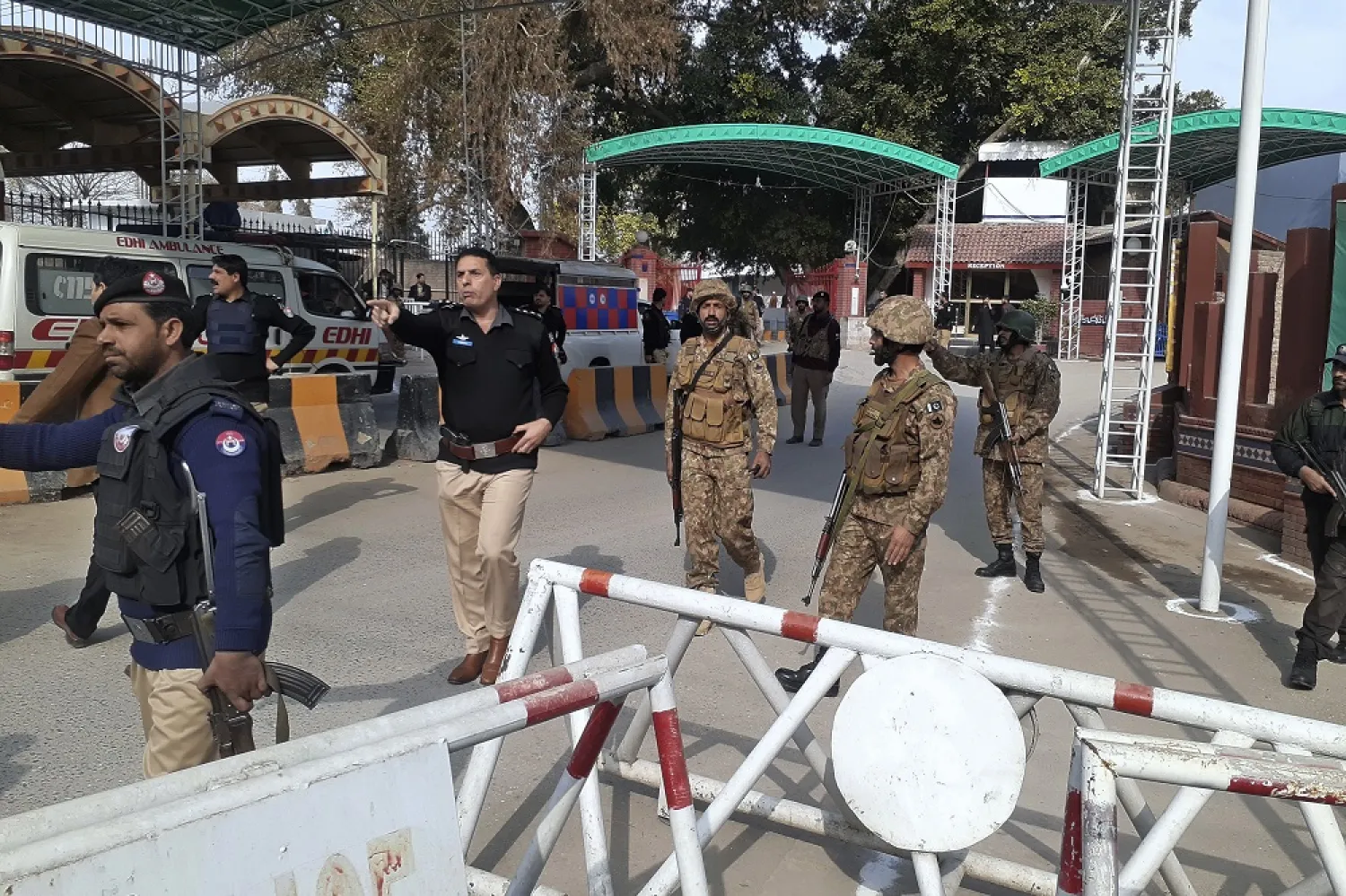A suicide bomber blew himself up inside a crowded mosque in a highly fortified security compound in Pakistan on Monday, killing 59 people, the latest attack by resurgent extremist militants targeting police in the unstable country.
Police said the attacker appeared to have passed through several barricades manned by security forces to get into the "Red Zone" compound that houses police and counter-terrorism offices in the volatile northwestern city of Peshawar.
"It was a suicide bombing," Peshawar Police Chief Ijaz Khan told Reuters. At least 176 people were wounded, he said, many of them critically.
It came a day before an International Monetary Fund team mission to Islamabad to initiate talks on unlocking funding for the South Asian economy hit by a balance of payment crisis.
Prime Minister Shehbaz Sharif condemned the attack.
Officials said the bomber detonated his load at the moment hundreds of people lined up to say their prayers.
"We have found traces of explosives," Khan told reporters, adding that a security lapse had clearly occurred as the bomber had slipped through the most secured area of the compound.
An inquiry was under way into how the attacker breached such an elite security cordon and whether there was any inside help.
Khan said the mosque hall was packed with up to 400 worshippers, and that most of the dead were police officers.
There was no immediate claim of responsibility for the attack, the worst in Peshawar since March 2022 when an ISIS suicide bombing killed at least 58 people in a mosque during Friday prayers.
Defense Minister Khawaja Asif told Geo TV that the bomber was standing in the first row of worshippers.
"As the prayer leader said 'Allah is the greatest', there was a big bang," Mushtaq Khan, a policeman with a head wound, told reporters from his hospital bed.
"We couldn't figure out what happened as the bang was deafening. It threw me out of the veranda. The walls and roof fell on me. Thanks to God, he saved me."
The explosion brought down the upper storey of the mosque, trapping dozens of worshippers in the rubble. Live TV footage showed rescuers cutting through the collapsed rooftop to make their way down and tend to victims caught in the wreckage.
"We can't say how many are still under it," said provincial governor Haji Ghulam Ali.
"The sheer scale of the human tragedy is unimaginable," Sharif said. "This is no less than an attack on Pakistan. The nation is overwhelmed by a deep sense of grief. I have no doubt terrorism is our foremost national security challenge."
Witnesses described chaotic scenes as the police and the rescuers scrambled to rush the wounded to hospitals.
Sharif, who appealed to employees of his party to donate blood at the hospitals, said anyone targeting Muslims during prayer had nothing to do with Islam.
"The US mission in Pakistan expressed deepest condolences to the families and loved ones of the victims of the horrific attack," Washington's embassy said a statement.
Peshawar, which straddles the edge of Pakistan's tribal districts bordering Taliban-ruled Afghanistan, is frequently targeted by extremist militant groups including ISIS and the Pakistani Taliban.









